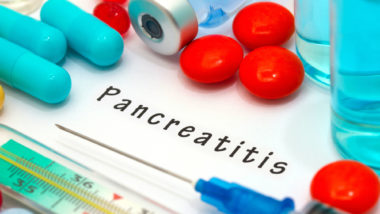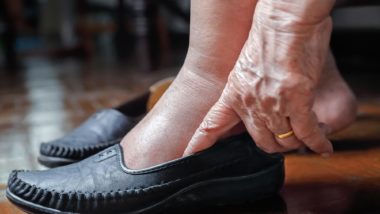Top Class Actions’s website and social media posts use affiliate links. If you make a purchase using such links, we may receive a commission, but it will not result in any additional charges to you. Please review our Affiliate Link Disclosure for more information.

In August 2018, the U.S. Food and Drug Administration issued a warning about the risk of this condition among diabetics who regularly take medications in this class, such as Invokana (canagliflozin). Drug companies that manufacture and sell gliflozin medications are now required to put a “Black Box” warning on product labeling.
What Are Gliflozins?
The term “gliflozin” refers to a class of prescription medicines known as SGLT2 inhibitors. Invokana was the first of these diabetes drugs and was approved by the FDA in 2013 over the objections of prominent physicians. Among those who expressed concerns was the founder and director of Public Citizen’s Health Research Group, Dr. Sidney Wolfe. Invokana was approved based on its ability to lower a patient’s hemoglobin A1C, which is only one measure of a diabetic’s glucose control.
At the time drugmaker Janssen Pharmaceuticals was presenting its case to the FDA, Dr. Wolfe pointed out that a significant number of participants in the original study had suffered from “cardiovascular events” and increased red blood cell concentration, putting them at risk for clotting and embolism.
Since then, Invokana and other gliflozins have been linked to numerous serious side effects in addition to cardiac arrest and stroke. These include kidney disease, decreased bone density, pancreatic inflammation, ketoacidosis (dangerously low blood pH levels) and lower limb amputation. Flesh-eating bacteria is only the most recent danger of gliflozins to be identified.
What is Fournier’s Gangrene?
The flesh-eating bacteria that has been associated with diabetic drugs such as Invokana causes a variety of “necrotizing fasciitis,” or infection, that actually kills off the victim’s soft tissues around the genital region. Most victims are male and have comorbidities that include obesity, a history of alcohol abuse, an autoimmune disorder, and diabetes. According to a study published in 2006 by researchers at Istanbul University in Turkey, nearly half of those suffering from Fournier’s Gangrene had abnormally high glucose levels.
Exactly how Invokana and similar drugs cause Fournier’s Gangrene is not precisely known, but it may be connected with gliflozin drugs’ mechanism of action. These drugs operate by disabling the sodium glucose transporter that allows the kidneys to absorb excess blood sugar and re-release it into the system. Instead, this extra blood sugar is passed in the urine – suggesting a cause and effect.
What Other Diabetes Drugs Are in the Gliflozin Class?
In addition to Invokana and Invokamet, other commonly-prescribed diabetes drugs that are part of the same class of prescriptions include:
- Farxiga (dapagliflozin)
- Jardiance (empagliflozin)
- Steglatro (ertgugliflozin)
- Suglat (ipragliflozin)
- Lusefi (luseogliflozin)
- Deberza (tofogliflozin)
In the fall of 2018, Invokana maker Janssen Pharmaceuticals, a division of Johnson & Johnson, settled a number of lawsuits pending in a U.S. District Court in New Jersey alleging various injuries caused by side effects associated with the drug. Lawsuits are still pending in other states as well as Canada. So far, there has yet to be any complaints filed that specifically cite Fournier’s Gangrene as a cause of action, however.
Join a Free Diabetes Medications & Flesh-Eating Infection Lawsuit Investigation
The type-2 diabetes medications linked to the flesh-eating infection include:
- Invokana
- Invokamet/Invokamet XR
- Farxiga
- Xigduo XR
- Qtern
- Jardiance
- Glyxambi
- Synjardy/Synjardy XR
- Steglato
- Segluromet
- Steglujan
If you or a loved one took one of the type-2 diabetes medications listed above and suffered from a flesh-eating genital infection, you may qualify to join this diabetes medication lawsuit investigation. Fill out the FREE form on this page for more information.
ATTORNEY ADVERTISING
Top Class Actions is a Proud Member of the American Bar Association
LEGAL INFORMATION IS NOT LEGAL ADVICE
Top Class Actions Legal Statement
©2008 – 2024 Top Class Actions® LLC
Various Trademarks held by their respective owners
This website is not intended for viewing or usage by European Union citizens.
Get Help – It’s Free
Join a Free Diabetes Medications & Flesh-Eating Infection Lawsuit Investigation
If you qualify, an attorney will contact you to discuss the details of your potential case at no charge to you.
PLEASE NOTE: If you want to participate in this investigation, it is imperative that you reply to the law firm if they call or email you. Failing to do so may result in you not getting signed up as a client or getting you dropped as a client.
E-mail any problems with this form to:
Questions@TopClassActions.com.
Oops! We could not locate your form.












